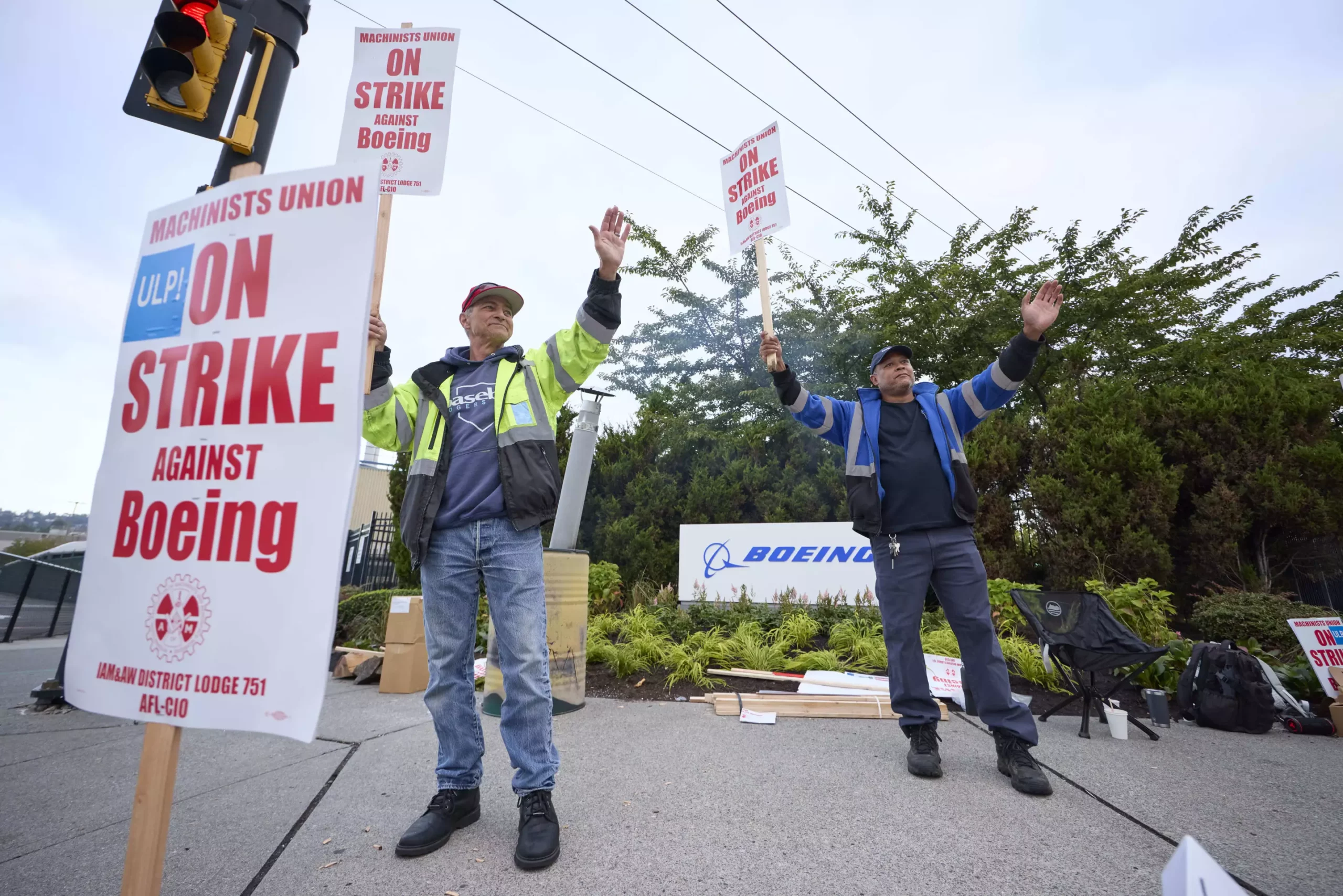The recent strike by 33,000 machinists at Boeing signifies more than just a labor dispute; it is a manifestation of growing economic discontent among blue-collar workers in the United States, particularly in high-cost regions like the Pacific Northwest. These machinists joined picket lines after overwhelming disapproval of a proposed contract that included a mere 25% wage increase over four years—an offer critics argue is insufficient given the surging cost of living in their area. This strike highlights critical issues surrounding worker satisfaction, economic equity, and corporate responsibility in a time when many American workers feel left behind.
While the strike may not lead to immediate disruptions in airline flights, it is likely to have significant long-term impacts on Boeing’s production capabilities, especially concerning its flagship aircraft like the 737 Max and the 777 jet. Current market conditions have already inflicted severe financial woes on Boeing, which has seen its stock plummet by nearly 40% throughout the year. Furthermore, the company’s total debt, which sits at around $60 billion, raises questions about its financial resilience amidst increasing operational challenges.
The rejection of the contract offer came swiftly after a regional branch of the International Association of Machinists and Aerospace Workers reported that an astonishing 94.6% of its members voted against the agreement. The resounding disapproval of the contract also reflects a larger struggle between labor and management where workers increasingly demand fairer compensation and better working conditions. Boeing’s response, recognizing the contract’s rejection and expressing an intent to negotiate further, illustrates the delicate balance of power between corporations and their employees.
One prominent grievance highlighted by workers relates to the inadequacy of the proposed wage increases in light of inflation and the rising cost of living. Many machinists, like John Olson, emphasized that past agreements no longer reflect current economic realities. The frustrations voiced about stagnant wages underscore a deeper social narrative where workers, despite their significant contributions to company success, feel undervalued and exploited. Moreover, critics point out that the company’s consistent profits should translate to equitable compensation, raising critical conversations about corporate ethics and social responsibility.
Additionally, the matter of bonus structure changes has further strained the relationship between employees and management. Many workers feel the new criteria undermine their hard work and loyalty. The promise of increased retirement contributions, while a welcome concession, pales in comparison to the demand for reinstated traditional pensions that were abandoned a decade ago. This compromise demonstrates the ongoing evolution of labor expectations in a rapidly changing economic landscape.
Corporate Responses and Future Negotiations
For Boeing, the stakes are high. The new CEO, Kelly Ortberg, has inherited a company embroiled in crises, from production mishaps to reputational damage. Ortberg’s commitment to engage with the workforce and address their concerns signals a potential shift in corporate culture, but will it be sufficient to restore trust? The interim phase of the strike presents an opportunity for both management and labor to reassess priorities and negotiate terms that are equitable, sustainable, and conducive to a cooperative workforce.
Boeing’s official statement expressed readiness to return to negotiations, yet worker sentiment suggests a skepticism towards corporate assurances. The labor movement’s demands for respect and fair treatment cannot simply rely on public pronouncements; tangible outcomes are imperative. The strain between labor and management is palpable, and the experience of previous strikes indicates that prolonged disputes can culminate in substantial costs for the company, including lost revenue and erosion of customer trust.
As the Boeing strike unfolds, it marks a significant chapter not only for the company but also for broader labor movements in the United States. The clash represents a critical examination of how corporations relate to their employees and a growing awareness of the need for equity in the workplace. As American workers continue to advocate for fair wages and improved working conditions, the outcome of this strike may set important precedents for future negotiation dynamics within other sectors.
In essence, this labor dispute underscores a pivotal moment in labor relations—one where the voices of the machinists resonate far beyond the factory floors of Boeing, echoing the sentiments of many American workers grappling with similar challenges. The labor movement is at a crossroads, and how the situation unfolds could redefine corporate engagement with their workforce for years to come. Whether Boeing can rise to meet the challenges at hand will be crucial, not only for its recovery but also for the integrity of labor relations moving forward.


Leave a Reply